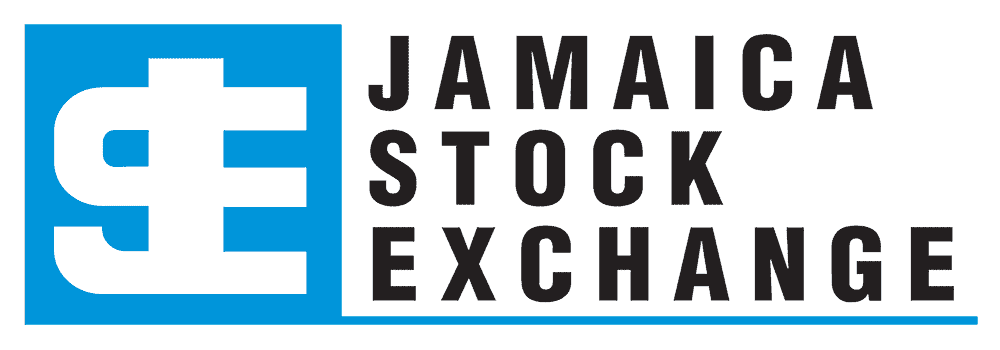Valedictory Address
JSE e-Learning Campus Postgraduate Diploma – Financial Services Management – Cohort 1
Graduating Class 2012
The Honorable Reverend Ronald Thwaites, MP, Minister of Education, Mrs. Marlene Street-Forrest, General Manager, Jamaica Stock Exchange, Mrs. Yvonne Nicholson, Administrator, JSE e-Learning Campus, Master of Ceremonies, other distinguished guests, fellow Graduates, family and friends, good evening! I am deeply honoured to be offering the valedictory address on behalf of the very first Cohort of the Jamaica Stock Exchange e-Learning Campus Postgraduate Diploma in Financial Services Management.
I feel compelled to commence by recognising the efforts of all those individuals who, in one way or another, contributed to the achievement of what, for most, if not all, of us, appeared an insurmountable task at the outset. Firstly, to God be the glory for the things He has done. I believe most of us will agree that quite frequently during this course, prayer was our only solace. Our achievement would not have been possible had it not been for the knowledge and experience of the Faculty and the invaluable guidance and direction provided by our local and international tutors.
Our accomplishment was also helped by the tireless effort of the e-Learning Campus team. Mrs. Nicholson, Mrs. Parsons-Smith, Tasheka, Tamara, Adrian, Damion and Tafari, we are truly grateful for all you did collectively and individually. Last, but by no means least, we acknowledge our families, friends and colleagues who provided immeasurable moral support and understanding during our course of study.
When I was asked to offer this speech on behalf of the Graduates, I immediately realised it would be a, somewhat, daunting task. I am reasonably sure that you are all expecting, as is customary for speeches of this nature, exploration of some profound philosophical question or, at the very least, a speech filled with inspirational messages. Sadly, I am neither a philosopher nor an inspirational speaker. I did, however, contemplate for some time, what I wished to say to and on behalf of this very diverse group: distinguished not only by profession, but also by sex, age, personality, morals, values, attitudes, beliefs and goals. It is said that Peter Drucker, writer and Management Consultant, was one of the world’s most influential management gurus and that his thinking transformed corporate management in the latter half of the 20th century.
He once said “Knowledge has to be improved, challenged, and increased constantly, or it vanishes”. It is with this quote that I will seek to establish a common thread among the Graduates here this evening.
As a backdrop, I will commence by briefly summarizing our current global economic reality. According to the International Monetary Fund’s “World Economic Outlook” published in April 2012, global financial prospects are gradually strengthening having suffered a major setback in 2011, however the recovery remains tenuous, at best, and downside risks remain elevated. Improved activity in the United States and policies in the euro area have reduced the threat of a sharp global slowdown, however the improvements are fragile and many countries and banks remain under pressure. The crisis in the euro area continues, a product of interactions among several underlying forces including mispriced risk, macroeconomic policy misbehavior over many years and weak prudential policies and frameworks. The crisis has exposed flaws in governance in many economies. Markets have become increasingly integrated, with significant cross-border bank lending, however supervision and regulation have remained at a national level. Swings in risk aversion in global markets have significantly affected the Latin American and Caribbean region.
Geopolitical uncertainty could trigger sharp increases in oil prices and other risks remain, including disruption in global bond and foreign exchange markets, the potential for sudden increases in interest rates due to high budget deficits and debt and slowing economic activity in some emerging economies. In the Jamaican context, talks continue with the IMF on a possible fund-supported economic programme for the country. Following a recently concluded trip to Jamaica, Mission Chief, Luis Breuer, presented a mixed picture of recent macro-economic developments in the country. Positive reports of real GDP growth of 1.5 per cent in 2011 after three consecutive years of negative growth, abatement of inflation, falling interest rates and a stable exchange rate, were coloured by reports of rising unemployment and a deteriorating fiscal position. He described the country’s modest recovery as “fragile” with strong downside risks.
How, you might ask, does this preamble relate to Peter Drucker’s famous quote and to us as Graduates of this Programme? Ladies and gentlemen, it has become evident to everyone, from financial market experts and practitioners to regular citizens with only a cursory interest in finance, that the operating landscape is becoming increasingly complex to navigate. I believe the dynamic nature of the environment is what drove most, if not all, of my fellow Graduates, to embark on this journey called the Postgraduate Diploma in Financial Services Management.
It was, quite likely, the recognition that knowledge acquired years ago in a classroom had become woefully inadequate, that led to us sacrificing the better part of fifteen months to this Programme.
Drucker claimed that in order for it not to vanish, knowledge has to be improved constantly. I am sure my fellow Graduates would agree that the programme bettered our knowledge base in certain critical areas. The review of financial markets and instruments in the “Foundation Unit” was a welcome refresher for most of us and new information for some of us. The enhancement of our understanding of certain vital concepts was also helped by having completed the “Global Capital Markets & Financial Tools”, “International Bond & Debt Markets”, “Mergers, Acquisitions & Privatizations” and “Strategic Portfolio Management” courses.
Drucker also purported that knowledge, if not constantly challenged, will vanish; and challenged we were: from the insights into organizational construct in the course “Corporate Structures & Procedures” to the discussions on proper corporate governance and ethics in the course, “Compliance, Ethics & Corporate Governance”. Our knowledge was, perhaps, most challenged, as we worked through the various case studies and real-life situations in the course “Mastering Financial Negotiations”. The lessons learned in this course will prove invaluable as we encounter inevitable negotiation situations in our work and life.
Perhaps the most important part of Drucker’s quote is his assertion that knowledge, if not increased, will vanish. Following the global recession of 2008, the management of risk became a topical issue. The “Credit Risk Management”, “Treasury Risk Management” and “Market Risk & Middle Office Management” courses exposed us to concepts which some of us had never before encountered or, at best, had only skimmed in previous courses of study. Additionally, the animated discussions on estate and tax management in the “Financial Planning & Wealth Management” course were eye-openers for many of us; and it would be remiss of me not to mention the wealth of knowledge offered by the course “Understanding & Implementing Jamaica’s Financial Regulations & Laws” which, I can now confess, I am still not sure I have even begun to understand.
Fellow Graduates, it is important to understand that commitment to continuing knowledge improvement and other relevant experience is vital. The financial world is complex with many moving parts which all work together. If we fail to maintain and build our abilities, we could expose our organisations, our clients and ourselves to imprudent risks.
Remember, “Knowledge has to be improved, challenged, and increased constantly, or it vanishes”.
To the Jamaica Stock Exchange e-Learning Campus I say, the quote is for you as well. You are to be commended for conceiving and effecting a programme of this nature. I encourage you to constantly review the course content as well as the administration of the programme, incorporating, among other things, new findings and ideas in the various course offerings as well as feedback from past and current students and faculty members.
Fellow Graduates, distinguished guests, Ladies and Gentlemen, all, thank you for enduring my presentation. Franklin D. Roosevelt once said of speechmaking: “Be sincere; be brief; be seated”. I was sincere, I was brief and I am about to be seated. Permit me to end by submitting that it is not enough to improve, challenge and increase our knowledge. We must use the knowledge we have gained to make an impact wherever we find ourselves. You would have heard it said “Knowledge is power”, however I agree with Larry Winget when he declared “Knowledge is not power. The implementation of knowledge is power.”





